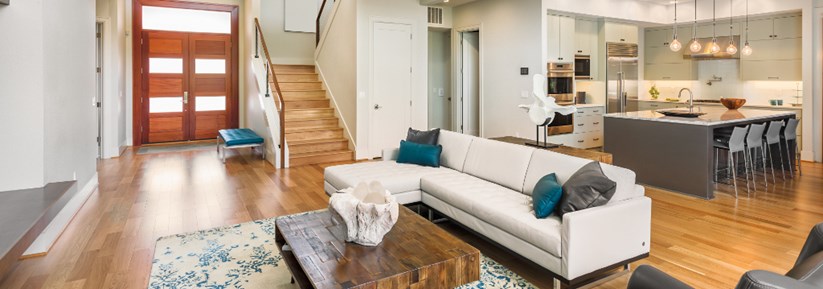10 Tips for Being a Good Tenant

Learn how to be a good tenant before, during and after you rent a property.
There are a lot of factors that can make you a more attractive tenant to prospective or current landlords when you’re renting a property. You want to make sure that you’re protected against unnecessary fees or lost deposits, and you also want to be certain you leave on good terms when you move on to your next property, especially if you’re after a good reference.
Here are our tips on how to be a good tenant.
Before you move in:
Sort the finances
Before you move into a new property – and really, before you even start looking – you should make sure you have a solid grasp of your finances and what you can afford to pay in rent. During each viewing, make sure you ask the estate agent about all the costs – this includes council tax, utilities, phone and internet, TV licence and any communal upkeep fees.
The deposit
On top of the recurring costs, you’ll also have to provide a deposit. This will typically work out to paying four to six weeks’ rent in advance. Make sure you understand the terms for getting the deposit back when you move out and consider deposit protection plans so that you can be confident that your full deposit will be returned in a timely fashion.
Have your references in order
As part of the renting process, you will be asked to provide relevant references to the letting agent or landlord. They will typically obtain references by contacting your bank, credit referencing agencies, current and previous employers and/or current and previous landlords. Make sure that you have notified these people to expect enquiries and prepare them to give accurate responses.
With the references concerning your finances and employment, you will generally need to demonstrate that your income is at least two and a half times the rent. Previous landlords will give references to confirm that you were a good tenant – which, assuming you have followed these tips, you will have been!
If you are self-employed, you may need to provide copies of trading accounts and an accountant’s reference. Even if someone such as a parent is going to be your guarantor, you will still need references.
Inventory
Before you move any of your belongings into the property, you should get a full inventory of everything inside from your landlord or agent. This includes any furniture provided – including wall-mounted shelving – carpets, curtains or blinds, white goods – refrigerator, oven, washing machine – and anything else in the property.
During your tenancy:
Get permission to decorate
Once you’ve moved into the new place, you’ll want to decorate it to reflect your personality. However, you should always check with your landlord before making any permanent modifications to the property. This includes repainting, attaching anything such as pictures or shelves to the walls, replacing white goods or heating systems, or changing the window coverings.
Since most landlords will expect you to leave a property in the same condition as it was before you moved in, you’ll eventually have to undo the changes you made, which can be difficult and costly. It is always best to ask permission in these situations so you don’t accidentally void your tenancy agreement or forfeit your deposit.
Don’t break anything
Continuing the theme of keeping everything in the state you found it in, when renting you should try not to break anything in the property. If you do, you will be responsible for the repairs and their cost.
In addition to avoiding breakages, you’ll also be responsible for standard upkeep on the property. Your exact responsibilities should be included in your tenancy agreement. For instance, you may be required to clean specific features, such as carpets and windows. You can always speak to your landlord to clarify the terms of the contract and what falls under your purview.
Security and safety
When renting a property, you will be responsible for general safety and security. For instance, your landlord has a legal obligation to have all gas appliances inspected yearly, and you should always make sure that this is done by a Gas Safe-registered engineer. You should also maintain any smoke and carbon monoxide detectors in the property.
You should also make sure you have proper insurance coverage. Generally, your landlord will have buildings insurance, which will cover the physical property, but you will be responsible for contents insurance, which covers your possessions. You should speak to your landlord about your insurance policy to make sure you are fully covered.
Pay your rent when it’s due
This may seem like common sense, but many tenants have lost out on potential properties because they neglected to pay their previous landlord on time. Setting up a recurring direct debit is an easy way to ensure that your payments go out promptly. If you miss any, you should make every effort to pay up as quickly as possible.
After you move out:
Give notice
When you decide to move out of the property, you should give your landlord proper notice: six to eight weeks is typical, but it can vary so do check your contract. This allows your landlord sufficient time to find new tenants as well as make any final checks on the state of the property and time to perform any outstanding repairs, for instance.
Clean up after yourself
The final thing you should do before you leave the property for the last time is make sure it is spotless for the next tenants. Clean the whole place from top to bottom, including cupboards and storage spaces. You may want to consider hiring a cleaning service as well. This is also a good way to make sure you didn’t leave anything behind, and also allows the new tenants to come into an immaculate property.